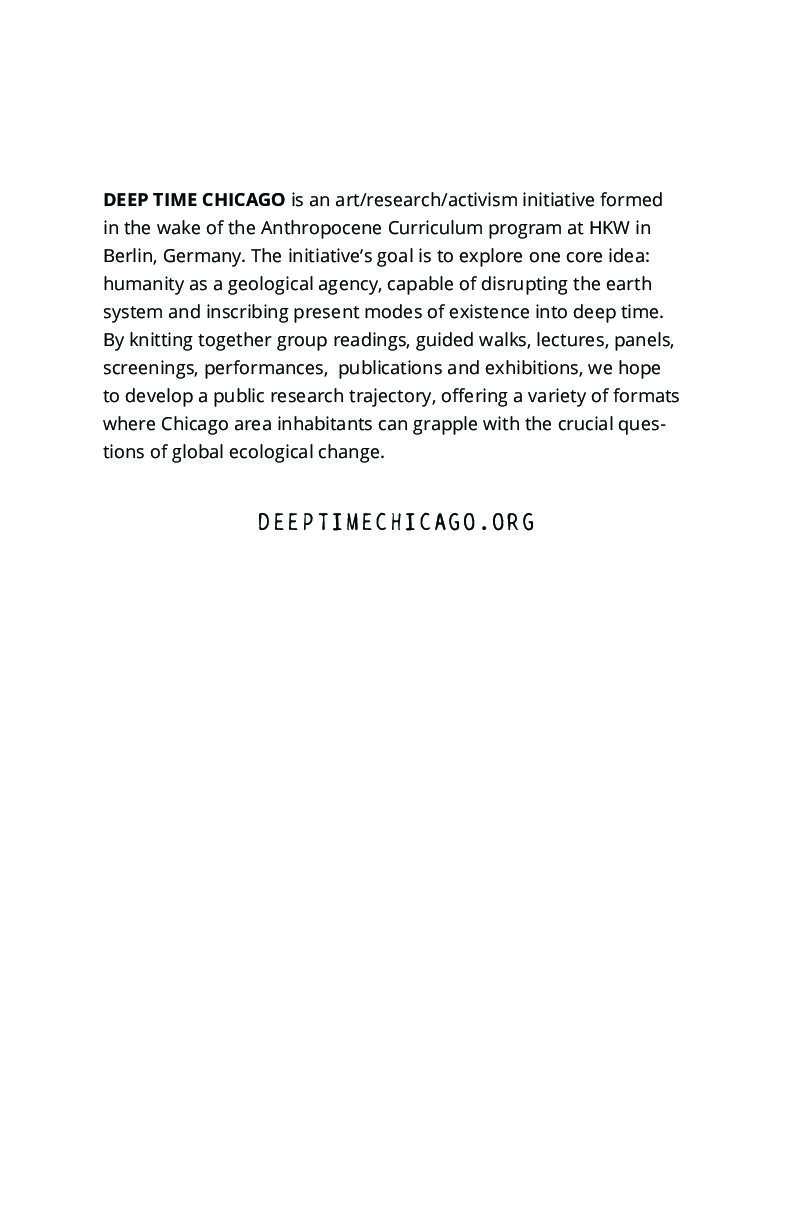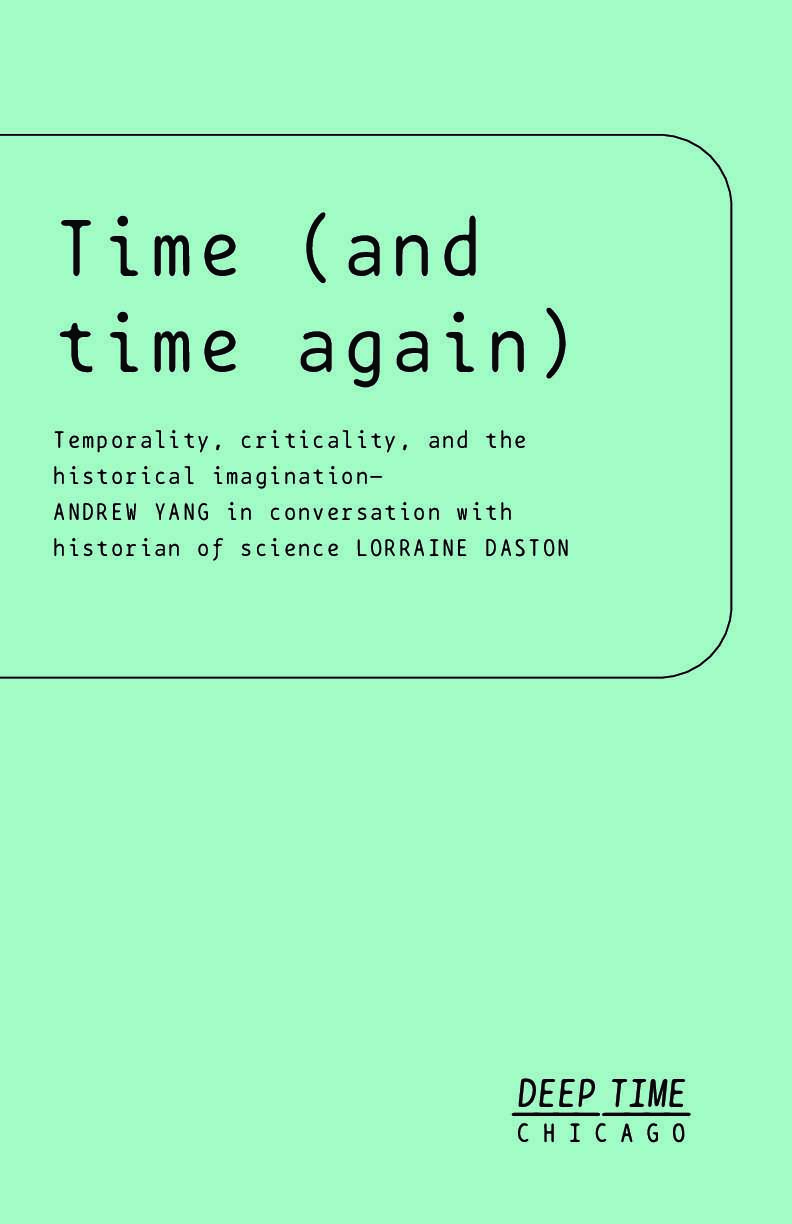Time (and time again)
Temporality, criticality, and the historical imagination: a conversation with historian of science Lorraine Daston
For this micro-publication, artist and scholar Andrew Yang interviewed historian Lorraine Daston about the scientific, political, and historical dimensions of the Anthropocene proposal. What are the stakes for historical scholarship in the period of the climate crisis? Part of the Deep Time Chicago pamphlet series.


Andrew Yang, “Time (and time again). Temporality, criticality, and the historical imagination: a conversation with historian of science Lorraine Daston,” Deep Time Chicago Pamphlet Series, 2017
Download (24 Pages)… designating an Anthropocene seems to fundamentally destabilize traditional notions of history and the sense it makes of human agency. By framing the narrative account of our own culture in the nonhuman context of geological deep time we are subsumed: just another fleeting time-being within the expanse of nature’s exceeding history. Historian Dipesh Chakrabarty has reflected on this in terms of imagining an Earth’s future in which humans are absent, claiming it is a thought experiment in which “our usual historical practices for visualizing times, past and future, times inaccessible to us personally—the exercise of historical understanding—are thrown into a deep contradiction and confusion.”1 However, framing ourselves within the geological past raises its own conceptual and existential questions. This is not only by virtue of that past’s vast and inhuman scales, but also for the sobering tale it tells about the fate that befalls so many species confronted with abrupt environmental change. In that light, starting this paragraph with “at the same time” shifts from an incidental phrasing into the core question that the Anthropocene designation poses: Can the time of “nature” and the time of “culture” now be embraced as one in the same time? How will the meaningful merging of natural history and human history be negotiated for modern/postmodern/contemporary global societies that have insistently kept nature and culture separate in their economic and philosophic imaginaries? This time, same time, deep time… no time like the present.
Extract from Andrew Yang, “Time (and time again). Temporality, criticality, and the historical imagination: a conversation with historian of science Lorraine Daston,” Deep Time Chicago Pamphlet Series, 2017.
